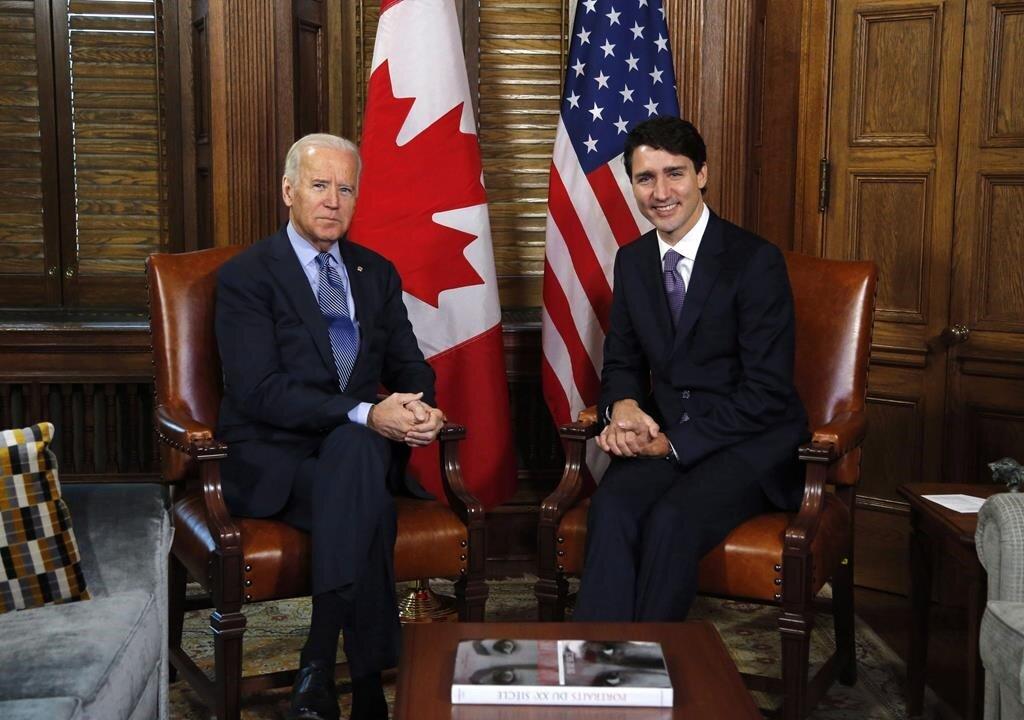
Prime Minister Justin Trudeau meets with US Vice-President Joe Biden on Parliament Hill in Ottawa on Dec. 9, 2016. Patrick Doyle/The Canadian Press
WASHINGTON—The White House isn’t leaving much wiggle room for Prime Minister Justin Trudeau to escape Joe Biden’s Buy American rules.
The two leaders are set to meet virtually later today in Biden’s first bilateral meeting since taking over as U.S. president.





